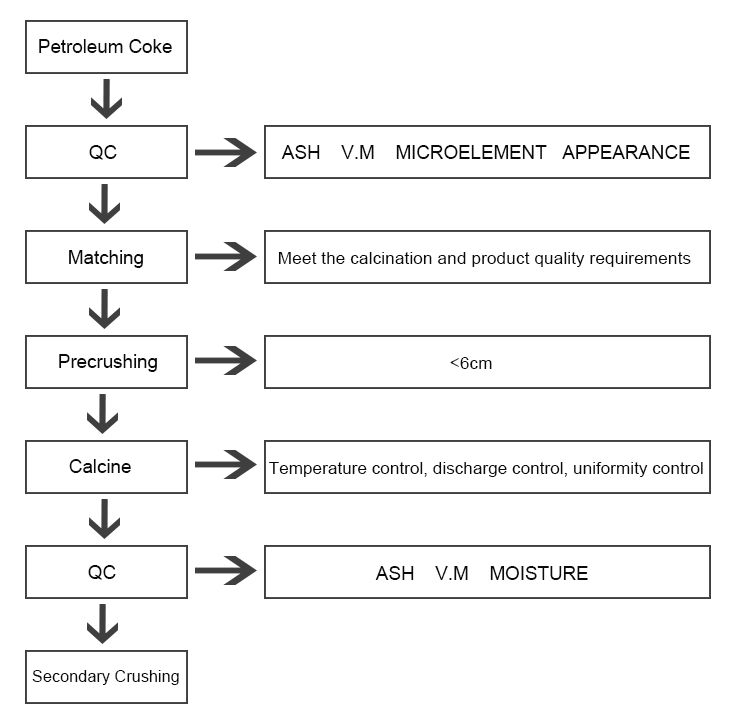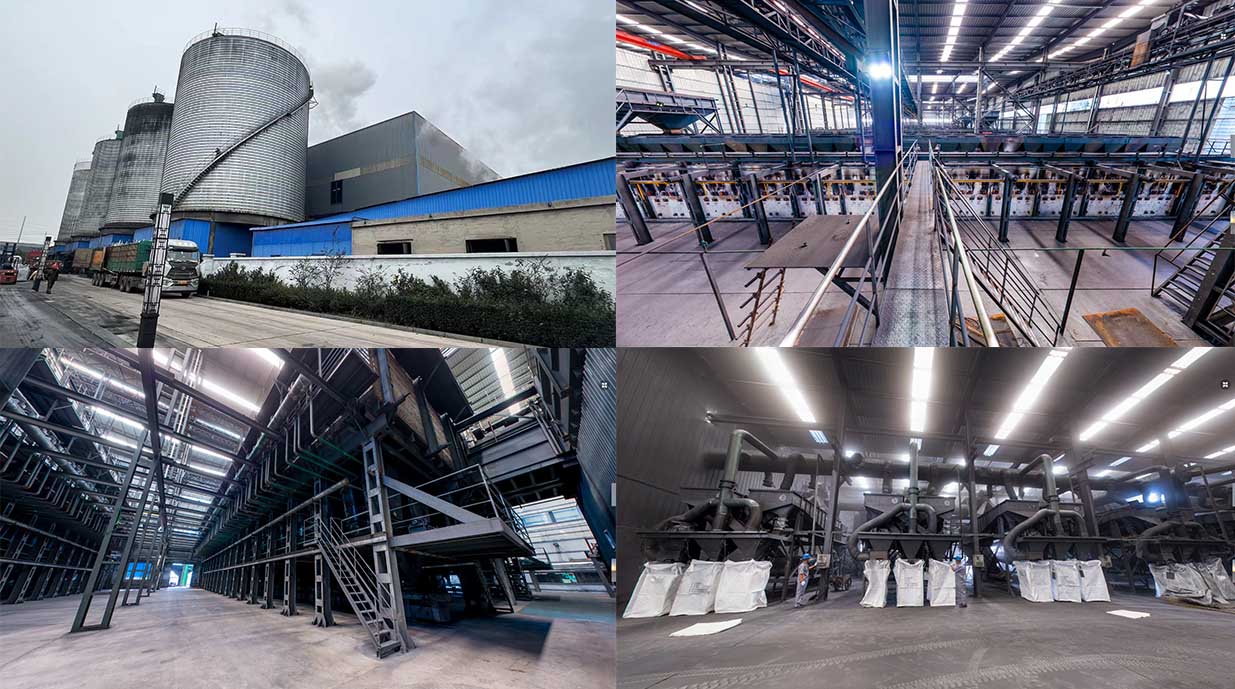Production Technology Of Calcined Coke After Calcination
Calcined coke is a crucial material used in the production of aluminum, primarily in the smelting process. It is produced by heating raw petroleum coke at high temperatures to remove impurities and volatile matter. Here are some of the key benefits of using calcined coke in aluminum production:
Electrical conductivity: Calcined coke has excellent electrical conductivity, making it an ideal material for the production of anodes used in the aluminum smelting process. Anodes are consumed during the process and are responsible for passing electrical current through the electrolytic cells, where aluminum is extracted from alumina. High electrical conductivity ensures efficient and cost-effective aluminum production.
High carbon content: Calcined coke typically has a high carbon content, which is necessary for the anode to function effectively. The carbon in the anode reacts with oxygen at the anode surface, forming carbon dioxide gas, and releases electrons that contribute to the reduction of alumina (Al2O3) into aluminum metal.
Low impurity levels: Calcination of coke removes volatile components and impurities, resulting in a product with low sulfur, ash, and moisture content. Low impurity levels are essential to maintain the purity of the aluminum produced and reduce the risk of impurities affecting the final product's quality.
Controlled particle size: The manufacturing process allows for the production of calcined coke with controlled and consistent particle sizes. This uniformity is essential for maintaining consistent and predictable anode performance during the smelting process.
Cost-effectiveness: Calcined coke is relatively inexpensive compared to other carbon-based materials used in aluminum production, making it a cost-effective choice for anode production.
Longevity: Anodes made from calcined coke have good structural integrity and can withstand the harsh conditions inside the aluminum smelting cell. They have a longer operational life compared to some other carbon materials, reducing downtime and replacement costs.
Environmental benefits: The use of calcined coke in aluminum production can lead to a reduction in greenhouse gas emissions. During the smelting process, the carbon dioxide released at the anode surface is partially reabsorbed in the alumina bath, reducing the overall carbon footprint of the aluminum production process.
In summary, calcined coke is a critical material in the aluminum smelting process due to its high electrical conductivity, low impurity levels, cost-effectiveness, and environmental benefits. Its use in anode production ensures efficient aluminum production and contributes to the overall sustainability of the aluminum industry.
Advantage to using Calcined Petroleum Coke in prebaked anode
Calcined petroleum coke (CPC) plays a crucial role in the aluminum industry. It is primarily used in the production of aluminum as an important raw material for carbon anodes. Here are the key roles of CPC in the aluminum production process:
Carbon Anode Production: Calcined petroleum coke is a key component in the production of carbon anodes for aluminum smelting. Carbon anodes are essential for the electrolytic reduction of alumina (Al2O3) to aluminum (Al) in the Hall-Héroult process. CPC is mixed with other materials, such as coal tar pitch and recycled anode butts, to form a homogenous mixture that is then compacted into anode blocks or rods.
Conductivity and Electrical Resistance: The main function of the carbon anode is to conduct electrical current during the electrolysis process. CPC, with its high carbon content and excellent electrical conductivity, ensures efficient transfer of electrical energy from the anode to the alumina electrolyte in the smelting cell. It allows for the flow of electrons necessary for the reduction of alumina into aluminum.
Thermal Stability and Mechanical Strength: Calcined petroleum coke provides the carbon anodes with excellent thermal stability and mechanical strength. Anodes must withstand the extreme conditions inside the smelting cell, including high temperatures and corrosive environments. CPC's thermal stability and mechanical strength help maintain the structural integrity of the anode during operation, preventing breakage and ensuring a longer anode lifespan.
Low Impurity Content: Impurities in the carbon anodes can have adverse effects on the smelting process and the quality of the produced aluminum. Calcined petroleum coke has low impurity levels, particularly with regards to sulfur and metals, which are undesirable in the anode. Low impurity content in CPC helps reduce anode consumption, improve cell efficiency, and minimize the formation of undesirable by-products.
Cost Efficiency: Calcined petroleum coke is a cost-effective raw material for carbon anode production in the aluminum industry. It provides a high carbon content and favorable properties required for anode performance at a relatively lower cost compared to alternative carbon sources.
In summary, calcined petroleum coke is indispensable in the aluminum industry for the production of carbon anodes. It ensures efficient electrical conductivity, thermal stability, mechanical strength, and low impurity content in the anodes, contributing to the successful electrolytic reduction of alumina and the production of high-quality aluminum.










